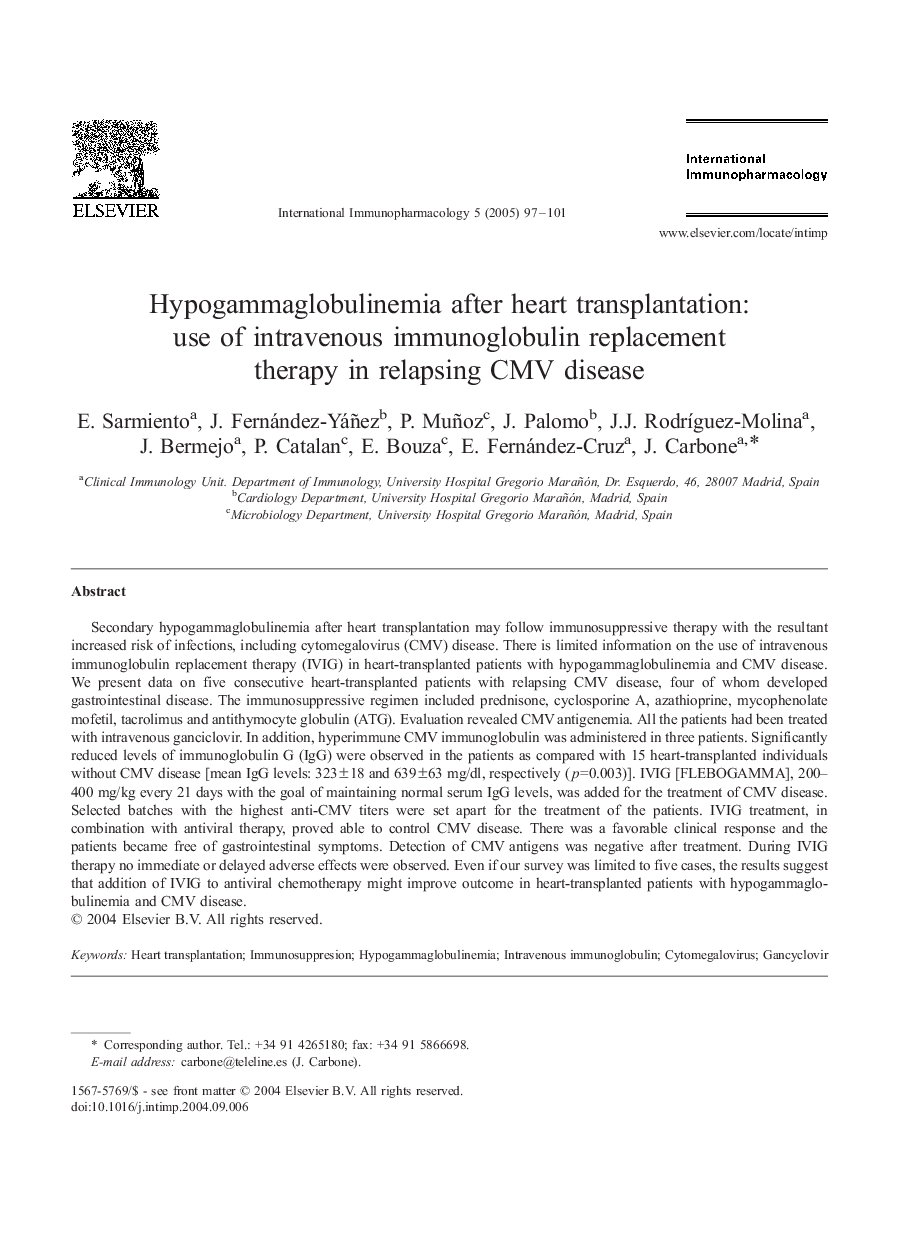| Article ID | Journal | Published Year | Pages | File Type |
|---|---|---|---|---|
| 9008204 | International Immunopharmacology | 2005 | 5 Pages |
Abstract
Secondary hypogammaglobulinemia after heart transplantation may follow immunosuppressive therapy with the resultant increased risk of infections, including cytomegalovirus (CMV) disease. There is limited information on the use of intravenous immunoglobulin replacement therapy (IVIG) in heart-transplanted patients with hypogammaglobulinemia and CMV disease. We present data on five consecutive heart-transplanted patients with relapsing CMV disease, four of whom developed gastrointestinal disease. The immunosuppressive regimen included prednisone, cyclosporine A, azathioprine, mycophenolate mofetil, tacrolimus and antithymocyte globulin (ATG). Evaluation revealed CMV antigenemia. All the patients had been treated with intravenous ganciclovir. In addition, hyperimmune CMV immunoglobulin was administered in three patients. Significantly reduced levels of immunoglobulin G (IgG) were observed in the patients as compared with 15 heart-transplanted individuals without CMV disease [mean IgG levels: 323±18 and 639±63 mg/dl, respectively (p=0.003)]. IVIG [FLEBOGAMMA], 200-400 mg/kg every 21 days with the goal of maintaining normal serum IgG levels, was added for the treatment of CMV disease. Selected batches with the highest anti-CMV titers were set apart for the treatment of the patients. IVIG treatment, in combination with antiviral therapy, proved able to control CMV disease. There was a favorable clinical response and the patients became free of gastrointestinal symptoms. Detection of CMV antigens was negative after treatment. During IVIG therapy no immediate or delayed adverse effects were observed. Even if our survey was limited to five cases, the results suggest that addition of IVIG to antiviral chemotherapy might improve outcome in heart-transplanted patients with hypogammaglobulinemia and CMV disease.
Keywords
Related Topics
Life Sciences
Immunology and Microbiology
Immunology
Authors
E. Sarmiento, J. Fernà ndez-Yáñez, P. Muñoz, J. Palomo, J.J. RodrÃguez-Molina, J. Bermejo, P. Catalan, E. Bouza, E. Fernández-Cruz, J. Carbone,
